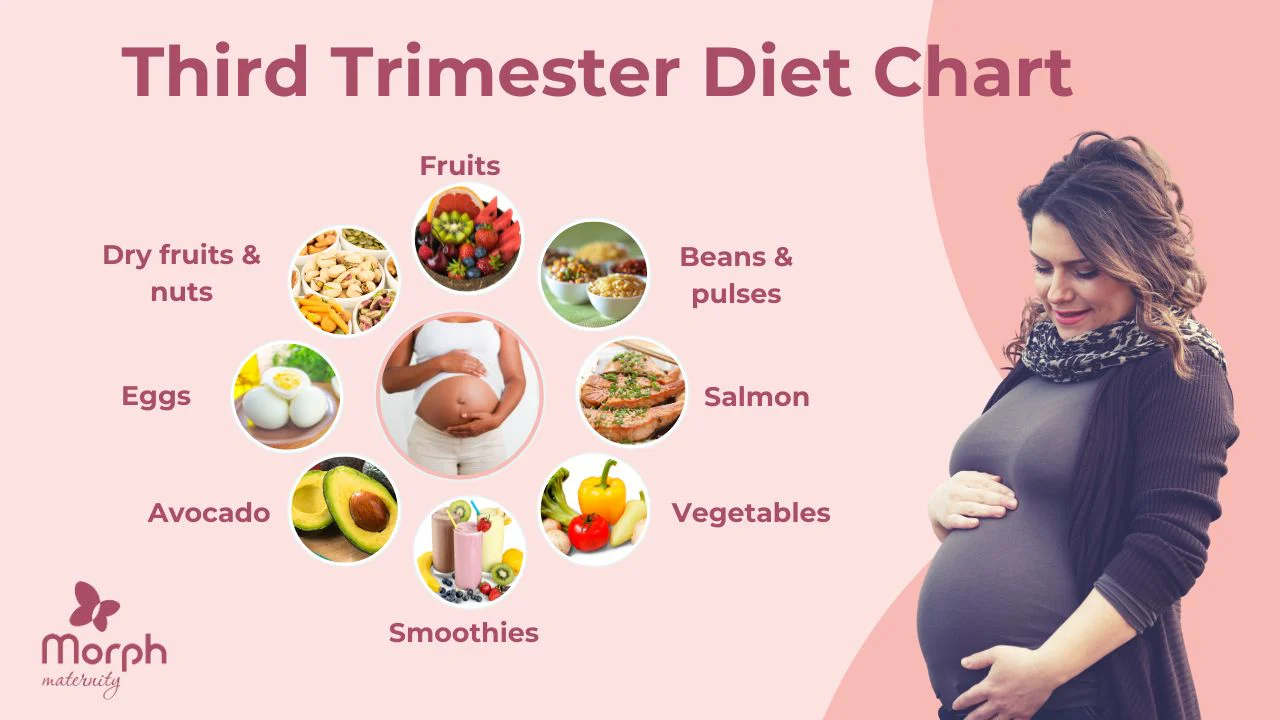In the final trimester of pregnancy, your body’s nutritional needs increase as your baby grows rapidly. To support this crucial phase, focusing on certain nutrients becomes vital for both the baby and the mother.
1. Boost Your Protein Intake
Protein is essential for the growth of your baby’s tissues and muscles. During the third trimester, aim to consume 10 grams more protein daily than you did in the earlier trimesters. This supports the rapid development of your baby’s organs. Foods like lean meat, eggs, dairy, and beans are excellent sources.
2. Ensure Adequate Iron Levels
Iron is crucial during pregnancy to support the increased blood volume. By the third trimester, low iron levels can lead to anemia, causing fatigue and complications during delivery. Include iron-rich foods like spinach, fortified cereals, and red meat in your diet. Pairing iron with vitamin C can help increase absorption.
3. Prioritize Calcium for Strong Bones
Your baby’s bones are growing quickly in the third trimester, making calcium intake vital. Dairy products, fortified plant milks, and leafy greens like kale can help ensure you’re meeting the recommended intake. If you’re struggling to get enough calcium, supplements may be necessary, but consult your healthcare provider first.
4. Stay Hydrated
Proper hydration is often overlooked, but it’s essential for maintaining healthy amniotic fluid levels and supporting your increased blood volume. Aim for at least 8-10 glasses of water daily and avoid sugary drinks and excess caffeine. Hydration also helps alleviate common third-trimester issues like swelling and constipation.
5. Calories: Quality Over Quantity
While your calorie needs increase by approximately 300 extra calories per day, focus on nutrient-dense foods rather than empty calories. These can come from an extra serving of fruits, vegetables, or whole grains. Avoid indulging too frequently in processed or sugary foods that don’t provide essential nutrients.
6. Eat Smaller, Frequent Meals
As your baby grows, your stomach may become compressed, making large meals uncomfortable. Opt for smaller, more frequent meals to ease digestion and prevent heartburn. This approach can also help combat common third-trimester nausea and reduce bloating.
Conclusion: Focus on Nutrient-Rich Choices
Your baby’s development is at its peak during the third trimester. By prioritizing nutrient-rich foods and maintaining a balanced diet, you can support your health and prepare for a smoother delivery. Consult your healthcare provider to adjust your diet and supplements as needed for this critical stage.

